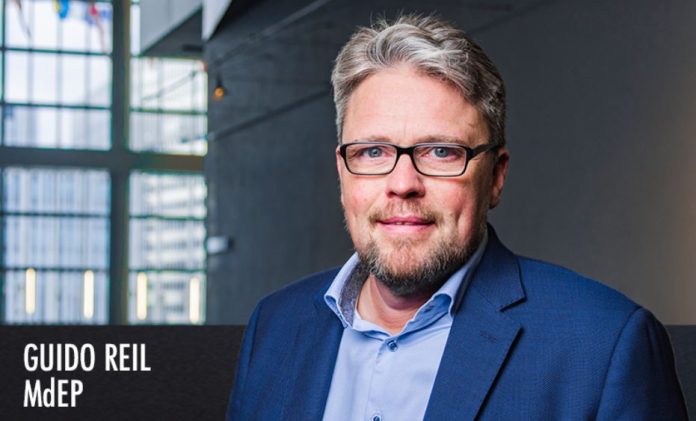MEP Guido Reil apologized for the criticisms brought to our country in a speech he delivered in the European Parliament in October, his reaction being published on Thursday by Social-Democrat deputy Natalia Intotero on her Facebook page, according to Agerpres.
The statement of the MEP was made after he visited Hunedoara county, in the beginning of December, at the invitation of Deputy Natalia Intotero, who is the President of the Education Committee in the Chamber of Deputies.
In his message, the European Deputy mentions that after his visit to Romania he managed to create his own image about the Romanian people, whom he appreciated as welcoming, benevolent and proud of their culture.
„I have to say that I met incredibly kind and welcoming people. People who are poorer than those in Germany. But people who are still rich because they are proud. (…) Proud of their culture, proud of their country. A country that is one with its church. (…) People who love their family – the classic family. All these are things that I also love and for which I have great respect. That is why, I want to say, out of all heart, that I want to apologise to the Romanian people, the proud Romanian people,” European deputy Guido Reil says in a video message.
In her turn, deputy Natalia Intotero expressed her appreciation for the message of the MEP, mentioning that only through collaboration and education can the social barriers „artificially created by mankind in centuries of polarization and violence” be overcome.
„The most important thing is to take concrete steps in this regard. Regardless of the result of the vote regarding Romania’s accession to the Schengen area, regardless of how many obstacles we encounter on our way, despite the constant attempts to divide, we shall remain a proud and united people. So help us God!,” the Social-Democrat deputy mentioned.
MEP Guido Reil paid a three-day visit to Hunedoara county, in the beginning of December, at the invitation of deputy Natalia Intotero, who said at the time that she wanted her guest to know „the real Romania.”
Agerpres


